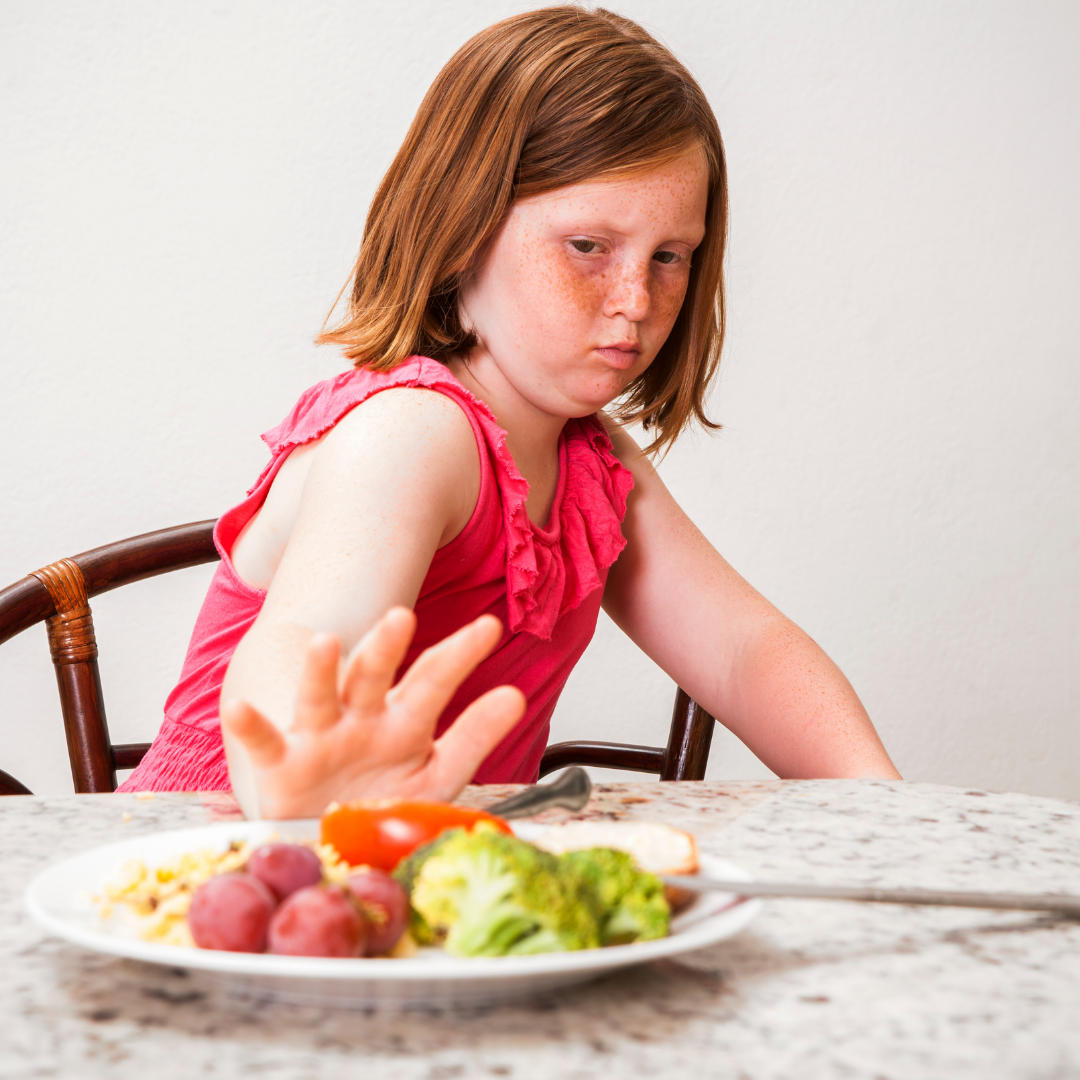
Linda Kracht outlines the importance of family mealtimes.
There is the purely simple refreshment of eating good food. There is the nourishment that comes from the communion of the table, the airing of ideas and the fostering of friendships. And there is the poetry of the senses. (Ruth Reichl, Why Food Matters)
Food matters, but so does the actual dining experience. It is more important for our general sustenance than we can imagine! Dining together helps to satisfy the desires of every heart to be heard, to be affirmed, to be loved, to be included, to be chosen, to be safe, and to be touched. And for these reasons, our most important dinner guests ought to be the family members we live with — from the tiniest to the oldest and everyone in between.

While inviting neighbors, or friends, or the parish priest feels much more important, it isn’t. Dinner time matters because of the food we eat. It matters because of the nourishment it provides when being in communion with each other at the table. It matters for the airing of ideas that takes place. It really matters for the feeding of the seven desires of every heart! It matters because of the familial friendships that are forming. But neither should we forget that a poetry of the senses is playing out before us — smell, sight, touch, and hearing — and that also matters!
Unfortunately, too many individual family members eat their meals on the fly! What was once a sacred past-time is altogether becoming forgotten, dismissed or overlooked. We are forgetting what home-cooked meals taste like! Many people already prefer the tasty fast foods; so they keep coming back for more. Who doesn’t love fresh French fries that are loaded with salt, oils, and flavoring that we just can’t seem to get right when cooking our own at home? Fast foods deliver more punch than made-from-scratch meals, because the latter are true but more subtle in nature (according to Reichl).
Eating together matters for so many reasons. Children learn to develop the same eating habits and manners of their parents. If parents have good eating habits; children generally form good eating habits. If parents have terrible eating habits; children imitate their habits. Habits take time to develop, but once established, they are difficult to change.

Today, millions of children eat the first meal of the day at school or day care rather than at home. Then, they eat lunch at school or day care. Some even eat dinner at their after-school programs. By the end of the day, many children will have had breakfast, lunch, and dinner with people who were not their parents or siblings! Hopefully that changed during covid lockdowns. (Was covid a slim silver lining in this cloudy eating trend?)
Parents naturally have less influence over what their children eat and their eating habits if/when they don’t eat regularly with them. Also, parents won’t know how much food their children consume; the quality of their diet or their children’s food preferences. Finally, they miss out on the emotional connections that are reinforced when communing as a family. The consequences of that will be discussed shortly.
A decades-old study compared the effects on adolescents who shared regular mealtimes with their parents and siblings vs. adolescents who did not. I think the percentages would be even lower today if the same study was repeated! The results were as follows. At least 75 percent of adolescents younger than 14 shared at least 5 meals/week with their families; twenty-five percent of this same age group had less than five meals per week with the family. 61 percent of the adolescents between the ages of 15 - 16 years old shared at least 5 meals/week with the family; thirty-nine percent of this age group had less than five meals per week with their family. 42 percent of adolescents between the ages of 17 - 19 regularly shared at least 5 meals/week with the family; 48 percent of this age group had less than five meals per week with the family. Note the significant decrease in sharing mealtimes as adolescents mature.
Consequences for adolescents who ate less than five meals/week with families:
1. A twofold risk of underage drinking of alcohol.
2. Three times higher risk for depression and/or suicidal thoughts.
3. Twice the number of attempted suicides.
4. Lower GPA’s.
5. Higher rates of anorexia (especially among females), binge eating, or dieting or using diet pills or having other eating disorders.
6. Significantly higher (75%) school dropout rates.
7. Forty-three percent increase in unexpected pregnancies.
8. The students were less likely to participate in community service projects.
The study results raised alarm bells; but, didn’t change the separate eating trends. Do you eat regularly as a family?
Click to tweet:
It's time to kick-start the sacredness of sharing meals together. #catholicmom
Ruth Reichl's statement at the start of this essay can help explain why adolescents tend to have more personal problems when they did not eat regular meals with their families. And for these reasons.
Eating together provides family members the time and opportunity to talk about a wide variety of things. Eating together increases children’s sociability! It allows individuals to throw out their thoughts and ideas; ask questions; share personal stories; argue about things; learn how to settle disagreements amicably; and learn new things. We feel better when we are able to share important details and facts about what’s going on in our lives with people we love.
Parents can also use mealtimes to introduce new foods to their children. Children love having close interactions with all family members! Eating together seems to stop time — at least for a short while. It allows face to face communication — something that young people need to experience very often — especially today. We feel together when we eat together!

What else can we learn from eating together? Sharing meals provide parents with the opportunity to teach good table manners to children — especially the younger ones. Some families feed their young children first; so that the adult-meal-time goes smoother. Including these young children, teaching them manners, seems to be a better way, in my opinion. The more often that children are excluded, the more their sociability suffers. Not one of us likes to eat with bad mannered children; but, this changes when parents attend to the problems.
Children learn about gratitude when eating together. Meals should start and end with giving thanks and praise to God for the food He has blessed us with. Secondly, diners should give thanks to God for their family. Thirdly, family members need to learn to give special thanks to the person[s] who prepared the meal! Fourthly, mealtimes give children the opportunity to learn how to set the table; chop vegetables; serve the food; clear the table; and help wash/load the dishes. These hum-drum chores develop virtue! Truly, the family that learns to eat and pray together, stays stronger together!
Eating together gives parents the opportunity to observe and/or address negative eating habits — including overeating, undereating or picky eating. This matters in an age of eating disorders. When individuals refuse to try new foods, or aren’t given opportunities to try new foods, or just eat the same meal over and over again, this fosters picky eating habits. Nutritionists teach that every person needs to try a food that he/she dislikes at least twenty different times before ruling it out for good! And, so children can learn to like "disgusting" foods with enough time and opportunity.

Years ago, the National Academy of Sciences conducted a study involving parents and children who were selective eaters. The parents were encouraged to invent positive, interesting, or humorous stories about certain foods they (the adults) had hated or despised when they were young. The study concluded that inventing stories about food experiences can change young children’s negative opinions about certain foods. “People swallowed a lie that changed their tastes.” (Is there a False Food Memory Diet? WebMD Medical News) Is it time to invent funny stories for your picky eaters? For sure, it's time to kick-start the sacredness of sharing meals together.
Questions to think about:
- How many meals does your family together each week?
- Is this your ideal goal? Why/why not?
- What can you do to change this trend?
- What good eating habits does your family have?
- What negative eating habits does your family have?
Copyright 2021 Linda Kracht
Images: Canva Pro
About the Author

Linda Kracht
Linda is a wife, mother of seven, and grandmother of 23. Linda is founder of Fortifying Families of Faith, LLC and her books include: Daughters Forever, Sons Forever; The Art of Breastfeeding, published by the Couple to Couple League; Mothers Forever, Fathers Forever; Surviving College; Black and White; and A Book for All Seasons.


.png?width=1806&height=731&name=CatholicMom_hcfm_logo1_pos_871c_2728c%20(002).png)
Comments